 It’s not uncommon to wonder if your challenges with focus, impulsivity, or organization might be signs of Attention-Deficit/Hyperactivity Disorder (ADHD). Self-reflection is a great first step, but understanding whether these symptoms are part of ADHD requires a more thorough evaluation. Here, we’ll explore how you can take action to get a professional diagnosis with Eastside TMS & Wellness Center and why it’s worth the effort.
It’s not uncommon to wonder if your challenges with focus, impulsivity, or organization might be signs of Attention-Deficit/Hyperactivity Disorder (ADHD). Self-reflection is a great first step, but understanding whether these symptoms are part of ADHD requires a more thorough evaluation. Here, we’ll explore how you can take action to get a professional diagnosis with Eastside TMS & Wellness Center and why it’s worth the effort.
Recognizing the Symptoms
ADHD can manifest in various ways, often categorized into three types:
- Inattentive Type: Difficulty staying focused, frequent forgetfulness, and a tendency to be disorganized.
- Hyperactive-Impulsive Type: Excessive fidgeting, an inability to sit still, and acting without thinking.
- Combined Type: A mix of inattentive and hyperactive-impulsive symptoms.
If you’re constantly losing your keys, interrupting conversations, or struggling to complete tasks, these might be clues. However, these symptoms can also overlap with other conditions like anxiety, depression, or sleep disorders. That’s why self-diagnosis isn’t enough—a comprehensive evaluation by a mental health professional is essential.
Why Seek a Professional Evaluation with Eastside TMS & Wellness Center?
Getting a proper diagnosis can:
- Provide Clarity: Understanding the root cause of your symptoms can be a relief.
- Guide Treatment: From therapy to medication, tailored treatment plans can improve your quality of life.
- Improve Self-Understanding: Knowing you’re not “lazy” or “disorganized” but managing a legitimate condition can boost self-esteem.
Steps to Get a Psych Evaluation?
- Schedule your Consultation Appointment: Schedule an appointment with one of our Psychiatric Nurse Practitioners at Eastside TMS and Wellness Center. Each session is up to one hour either in person or through the convenience of telehealth.
- Prepare for Your Appointment Write down:
- A list of your symptoms, including when they started.
- Examples of how these symptoms affect your daily life (e.g., work, relationships, or school).
- Any family history of ADHD or other mental health conditions.
- Undergo a Comprehensive Assessment A proper evaluation often includes:
- A detailed interview about your medical, emotional, and developmental history.
- Questionnaires or behavior checklists for you and someone close to you (e.g., a parent, partner, or teacher).
- Possible cognitive or psychological testing.
- Discuss Results and Next Steps Your evaluator will review the findings with you and, if appropriate, provide a diagnosis. They may also discuss treatment options and recommend resources.
What If You Don’t Have ADHD?
If your symptoms aren’t due to ADHD, the evaluation can still uncover other issues that might be affecting your focus or behavior. Anxiety, depression, learning disabilities, or even medical conditions like thyroid problems could be at play. Knowing what’s going on allows you to seek appropriate help.
Breaking the Stigma
Remember, seeking help is a sign of strength, not weakness. ADHD is a common, manageable condition, and many successful individuals thrive with the right strategies in place. Eastside TMS and Wellness Center creates a safe space for all patients to feel comfortable discussing challenges that they may face with others. Everyone is treated as a pure individual and so should their treatment plan.
If you’ve been wondering, “Do I have ADHD?” don’t let uncertainty hold you back. Take the first step toward understanding yourself better by reaching out to Eastside TMS and Wellness Center at 425-919-6826 for a psych evaluation. The answers you gain could transform your life.


